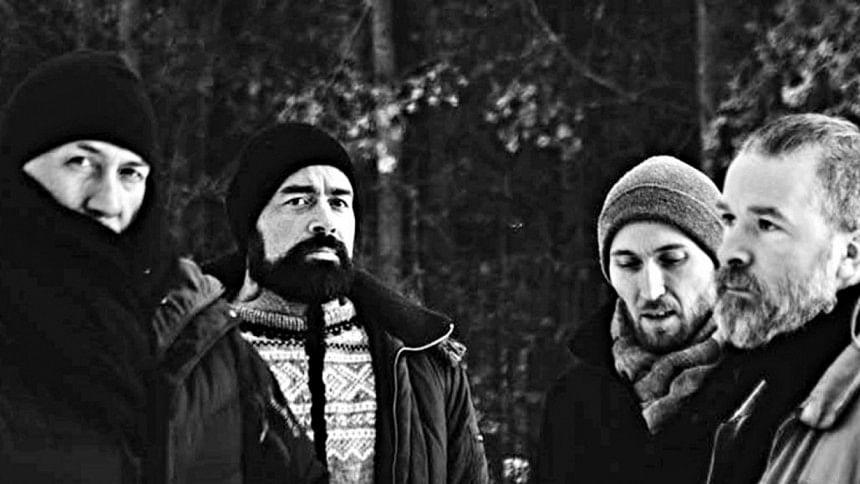Synthpop, myths, and the end of the world

Ulver's 2017 release, The Assassination of Julius Caesar, includes in its lyric booklet the celebrated painting Bonaparte before the Sphinx. A great myth, the relic of a lost civilisation juxtaposed against a man who was building his own legend. A man who styled himself after Caesar, whose name bookends an entire era.
The event referenced in the album's title is never brought up in the lyrics, but it casts a shadow over every word Kristoffer Rygg sings. Legends fade. History repeats itself. New legends arise but all things are beholden to myths that came before.
Rygg sings, "I want to tell you something about the grace of faded things" but within that same song he admits the difficulties of capturing the weight of history. Words are inadequate, and what was once vibrant can now scarcely be expressed.
"I speak with a frozen tongue in a dead language."
Ulver juxtaposes past and present, the divine and the mundane, in the very sound of the album. From black metal roots this Norwegian group has gained a reputation for jumping and blurring genres with aggression, and this latest album has arguably their most unexpected leap yet. Synthpop alongside Gothic chords. It bounces, it grooves; you can dance to it. All the while Rygg croons about death and fallen empires. Modern Bacchanalia beneath soaring cathedral vaults. It is a very listenable album that is also objectively weird. It's almost a miracle that the combination works at all. The sound in The Assassination of Julius Caesar isn't just functional, it's gorgeous.
The real meat of the songs are in the lyrics, Rigg's beautiful delivery, and how the tone of each song affects the storytelling. Opening track "Nemoralia" is a true statement of intent, the beat straight out of Depeche Mode as Rigg moves through a list of images by turns idyllic and disturbing. Moon festivals. Christians as "human candles". Nero setting fire to Rome.
As the references pile on, the suggested relationship between the images become stranger, more complex. Saints Peter and Paul, who died in Rome. Princess Diana, named after the Roman goddess of hunting and the moon, who was hounded to death one night "in the Capital of Romance". As the mournful "So Falls the World" later makes explicit, tragedies are repeated and nothing is new. The promise of the 60s fades away into death, as "1969" recalls that year's darkest myth: the Manson Family's cultish devotion to The Beatles, and the murder of the pregnant Sharon Tate. Fiction is invoked: "We all must carry Rosemary's baby." The house that holds the Church of Satan disappears. John Paul II survives his first assassination attempt, and his wounds recall the stigmata that mark God's favoured. There are wolves in the forest and the world will fall as Rome once fell, over and over again.
For Rome looms over it all, doomed and gone, leaving behind only the ruins and stories with which we have shaped the world we live in. Rather weighty themes for an album that borrows heavily from Depeche Mode, but Ulver does them justice. Give it a spin, it's good.

 For all latest news, follow The Daily Star's Google News channel.
For all latest news, follow The Daily Star's Google News channel. 



Comments